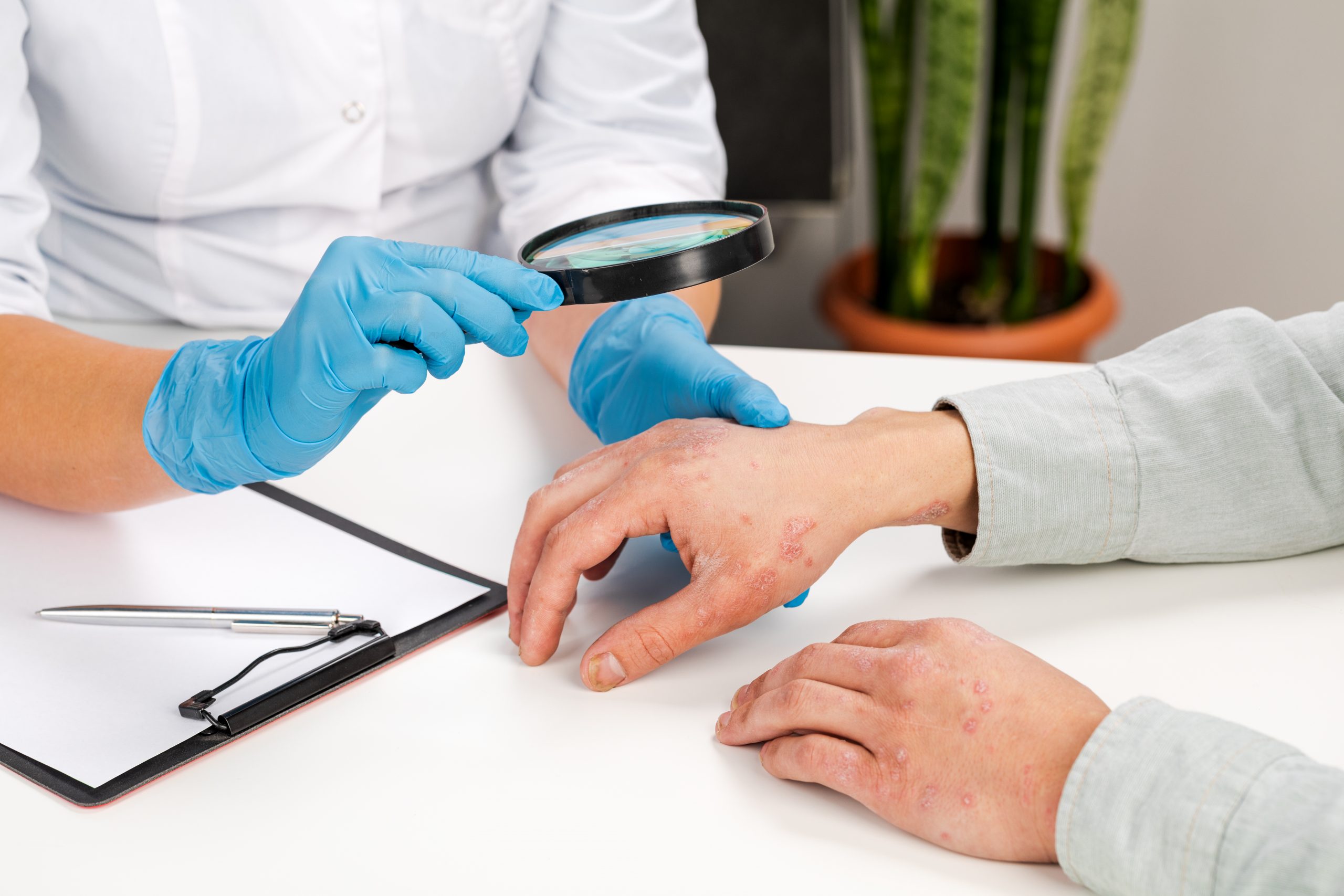- Mon - Fri: 08:00 - 17:00
- info@parkwegkliniek.nl
- +31 (0)43 321 03 10

Psoriasis is a non-contagious skin disease with red sharply defined patches and white flakes. They are often present on knees and elbows, but you can get these spots all over your body. The disease can occur at any age out of the blue. Psoriasis frequently runs in the family, there is a genetic predisposition. Sometimes there is an eliciting factor such as skin damage, infections, drug use and stress.
There are different forms of psoriasis. For instance, the most well-known form is with red, thickened patches all over the skin (psoriasis vulgaris), but there is also a form with small patches that present for only a short period of time (psoriasis guttata), often due to a throat infection. There is also a form limited to palms and soles of the feet, nails or to the folds of the body. People who have psoriasis are also more likely to have other inflammatory conditions, such as rheumatoid arthritis, inflammatory bowel disease or eye infections. People with psoriasis are also relatively more likely to suffer from high blood pressure, obesity, diabetes, excessive cholesterol and fatty liver which can increase the risk of heart disease. Depression is also seen more often. In case there is such an issue, mention it to your doctor.
There is no treatment that will ensure Psoriasis never comes back. However, Psoriasis can sometimes stay away for years. Psoriasis can be treated with cream, light therapy, tablets or injections. The dermatologist will discuss an appropriate treatment for you during the consultation.